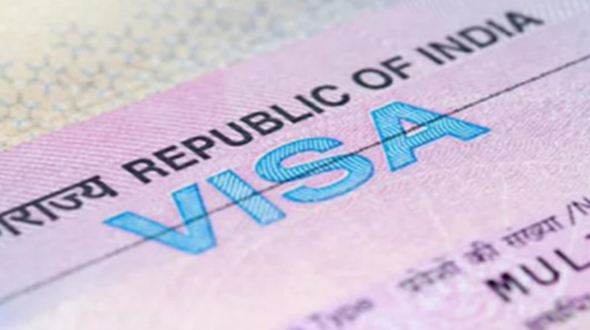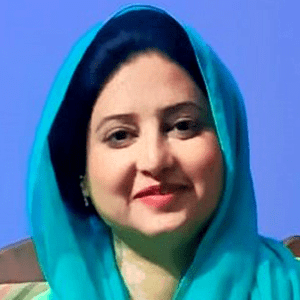India has officially resumed issuing visas to Afghan nationals after a four-year suspension, marking a significant shift in its engagement with Afghanistan. This development comes alongside the launch of a new online visa application platform, scheduled for April 2025, which will facilitate Afghan citizens in applying digitally for visas in categories such as business, medical, cultural, and academic. While this move has been welcomed by some as a sign of renewed engagement, critics argue that it reflects a pattern of opportunistic diplomacy rather than a genuine commitment to regional peace and partnership.
The suspension of Indian visas to Afghan nationals came in the wake of the Taliban’s return to power in August 2021. As the Taliban took over Kabul and thousands of Afghans scrambled to flee, India closed its borders and offered little to those it once claimed to support. The absence of a humanitarian response from India at that time drew widespread criticism. Many Afghans who had collaborated with Indian missions, NGOs, or educational institutions found themselves abandoned. As one observer noted,
“In 2021, as Afghans fled the Taliban, India closed its borders without hesitation, abandoning those it once claimed to support.”
This pattern is not new. Historical episodes reveal that India’s alliances have often crumbled when tested under real pressure. The silence during President Mohammad Daud Khan’s final days in the late 1970s serves as a stark reminder that India’s friendships tend to dissolve when strategic costs outweigh perceived benefits.
“When President Daud was in danger, India stayed silent and let him fall, a reminder that its so-called friendships collapse under real pressure,” critics assert.
Now, after years of disengagement, India’s sudden re-entry into the Afghan context raises important questions. Is this a genuine diplomatic overture, or is it, as some suspect, a calculated move to regain lost ground after a series of regional missteps? Analysts argue that this re-engagement is not about helping Afghans rebuild their lives, but rather about reviving strategic influence and proxy networks that serve India’s interests in the region.
“This visa outreach is not goodwill,” says one observer, “but a strategic move to revive proxies and influence under the cover of aid and access.”
India’s foreign policy, critics say, has consistently prioritized short-term advantages over long-term commitments.
“India’s alliances are built on convenience, not commitment, Afghanistan has lived through its empty promises and vanishing acts.”
Whether in Afghanistan, Nepal, Sri Lanka, or even within broader multilateral engagements, India’s shifting loyalties and reactive policies have often undermined its credibility as a reliable partner.
Furthermore, the timing of India’s renewed interest in Afghanistan is viewed with suspicion by many. Following diplomatic isolation over its deteriorating relations with neighbouring Pakistan and broader regional criticism, India appears to be seeking alternative pressure points.
“After being abandoned by its key partners for pushing a false narrative, India is now desperately seeking alternative pressure points by reactivating old networks in Afghanistan.”
Critics argue that this move is less about humanitarian values and more about strategic repositioning. The concern is that India’s visa policy may serve as a channel to rebuild intelligence networks or renew ties with Afghan elements that historically opposed Pakistan, a country with which India shares a tense and volatile relationship.
“This move is not about humanitarian support for Afghans,” one analysis warns, “but about reviving proxy elements that have long targeted Pakistan from Afghan soil.”
India’s approach, according to regional experts, reflects a broader pattern of using diplomacy as a tool of power projection rather than partnership.
“Reappearing only when it senses an advantage, India treats diplomacy like a tool for power, not partnership,” says a South Asian policy analyst.
This perception further undermines India’s claims of supporting peace and development in conflict-affected regions like Afghanistan. India’s resumption of visas might appear to be a gesture of goodwill on the surface, but underlying motives suggest a calculated attempt to reassert regional influence.
“Genuine diplomacy builds trust over time,” a critic notes, “but India’s opportunistic re-entry into Afghanistan reveals a pattern of political gimmickry, not peace building.”
For Afghans, who have endured decades of conflict, foreign manipulation, and broken promises, such tactics only deepen their disillusionment with external powers. In light of recent events, including India’s failed military gambles and strained diplomatic relations, the international community must take a closer look at India’s renewed interest in Afghanistan. Is it a sign of reinvigorated regional diplomacy, or a veiled attempt at geopolitical manoeuvring?
“The international community must question India’s motives in Afghanistan,” observers caution, “especially after its recent aggression and its history of backing instability in the region.”
While the digital visa platform and re-establishment of Afghan travel to India may bring immediate relief to some individuals, the broader implications cannot be ignored. If India is serious about building a sustainable and trustworthy relationship with Afghanistan, it must go beyond tactical gestures and commit to genuine, long-term engagement, rooted in mutual respect, not strategic exploitation. Otherwise, its actions will continue to be seen not as bridges of diplomacy, but as instruments of opportunism.








